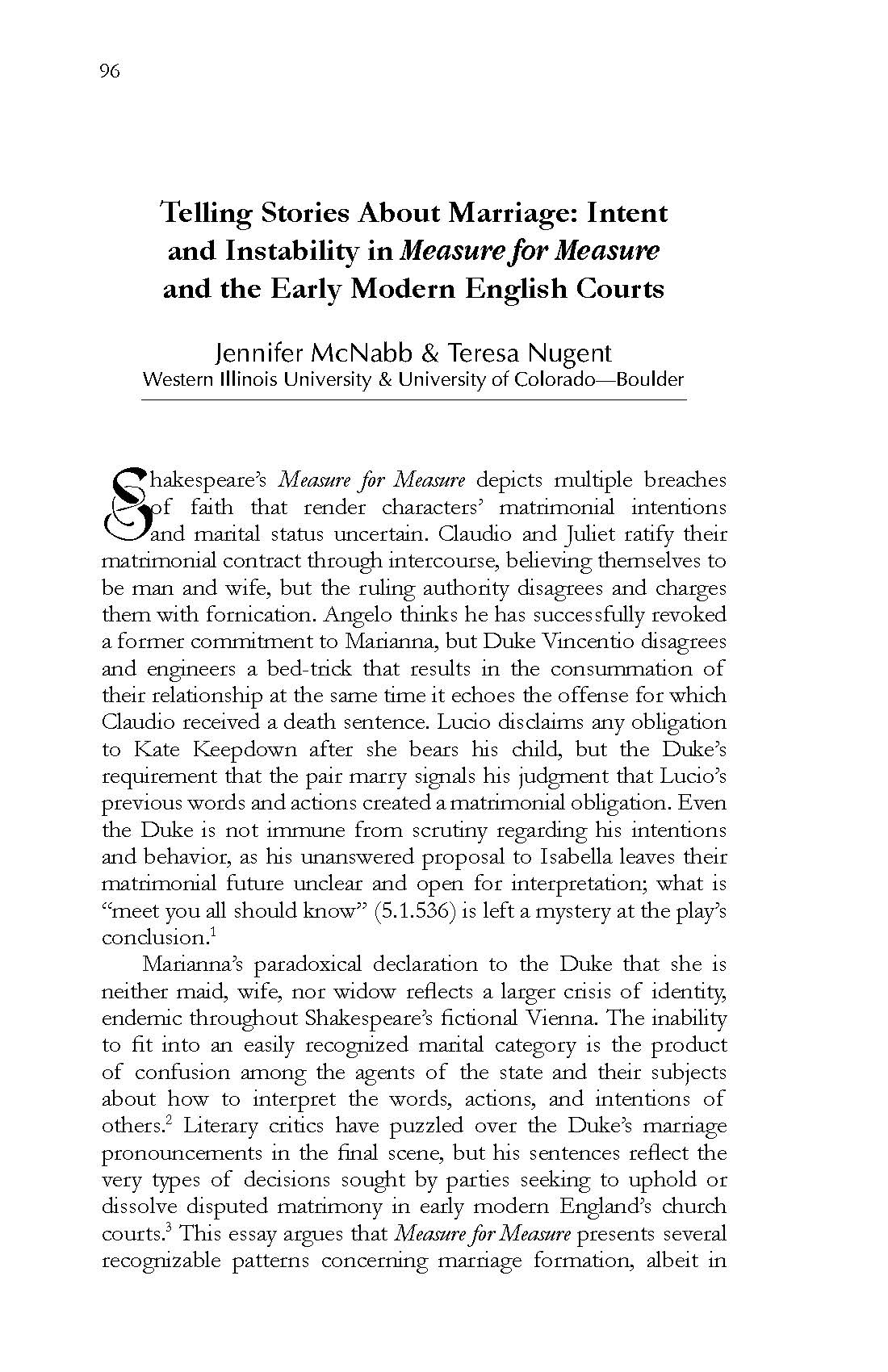Telling Stories About Marriage: Intent and Instability in Measure for Measure and the Early Modern English Courts
Main Article Content
Abstract
Shakespeare’s Measure for Measure depicts multiple breaches of faith that render characters’ matrimonial intentions and marital status uncertain. Claudio and Juliet ratify their matrimonial contract through intercourse, believing themselves to be man and wife, but the ruling authority disagrees and charges them with fornication. Angelo thinks he has successfully revoked a former commitment to Marianna, but Duke Vincentio disagrees and engineers a bed-trick that results in the consummation of their relationship at the same time it echoes the offense for which Claudio received a death sentence. Lucio disclaims any obligation to Kate Keepdown after she bears his child, but the Duke’s requirement that the pair marry signals his judgment that Lucio’s previous words and actions created a matrimonial obligation. Even the Duke is not immune from scrutiny regarding his intentions and behavior, as his unanswered proposal to Isabella leaves their matrimonial future unclear and open for interpretation; what is “meet you all should know” (5.1.536) is left a mystery at the play’s conclusion.1
